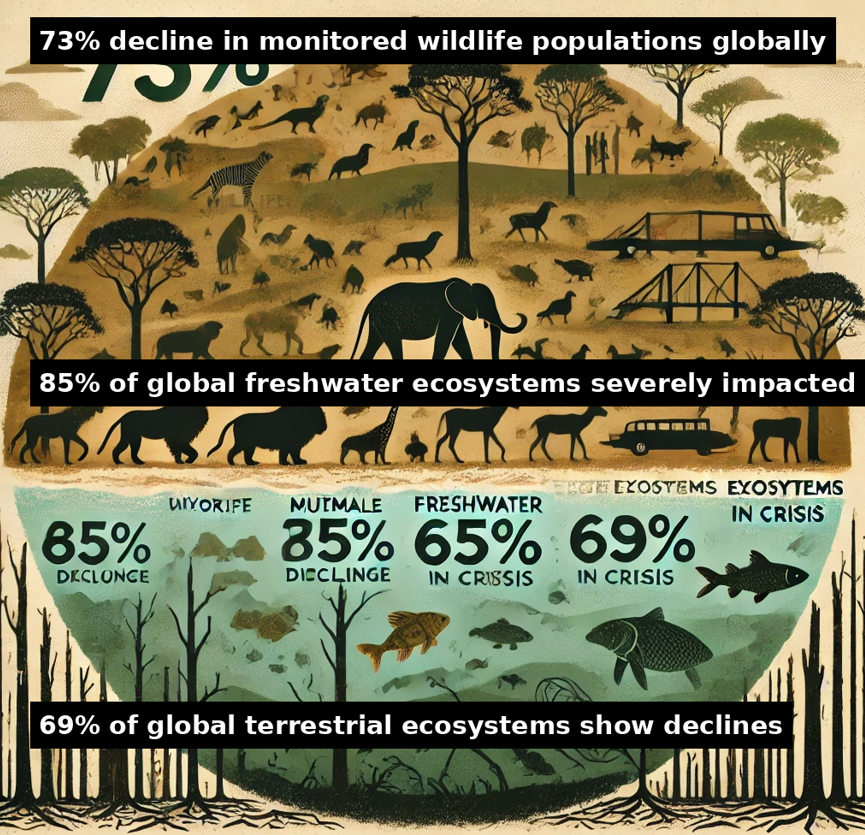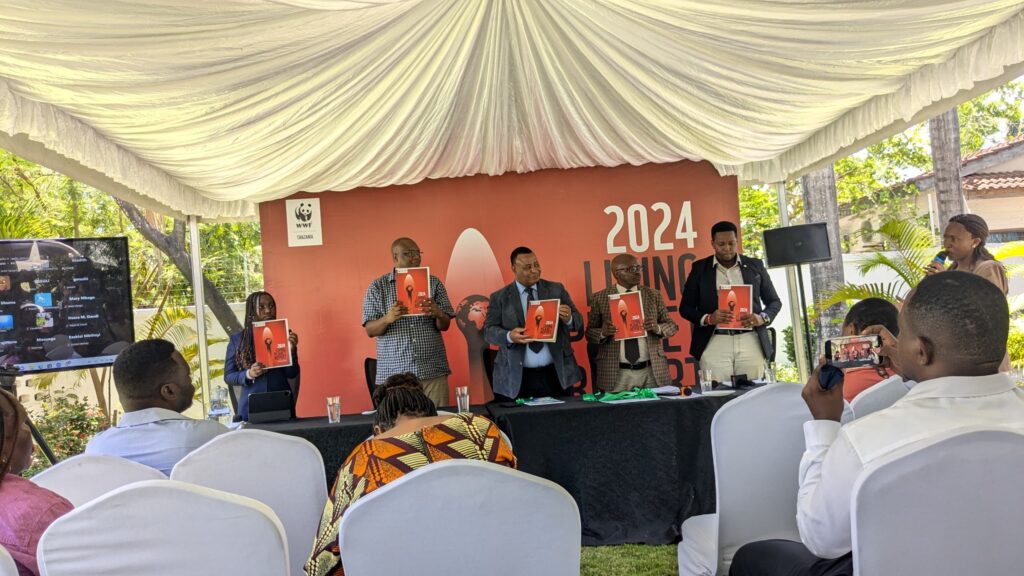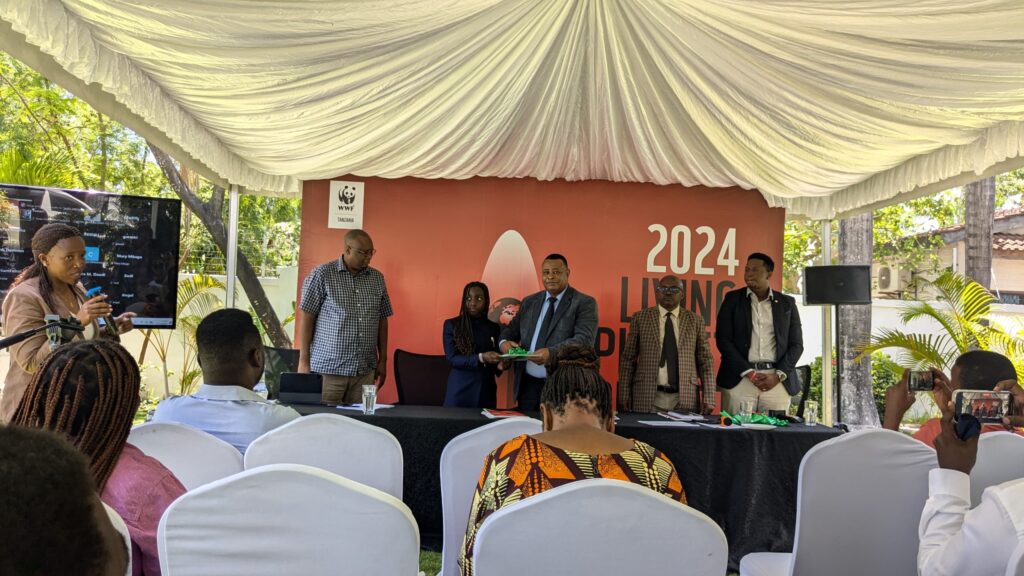Dar es Salaam. Africa has witnessed an overwhelming 76 percent decline in wildlife populations over the past 50 years, according to World Wide Fund for Nature’s (WWF) 2024 Living Planet Report (LPR).
This alarming figure underscores the growing threat to biodiversity and highlights the urgent need for decisive action to protect ecosystems across the continent. Globally, wildlife populations have dropped by 73 percent, driven by habitat destruction, climate change, pollution, and overexploitation.
The report warns that if immediate interventions are not taken, ecosystems could cross critical tipping points, endangering both wildlife and human livelihoods.
These tipping points could lead to irreversible damage to vital ecosystems, threatening food security, water availability, and climate stability.

Tanzania’s Biodiversity at Risk
WWF Tanzania’s Country Director, Dr Amani Ngusaru stressed that biodiversity loss is closely linked with climate change, posing a significant challenge for countries like Tanzania.
“The interlinked crises of nature loss and climate change are pushing wildlife and ecosystems to their limits. We risk losing key species like forest elephants and black rhinos, which are critical to maintaining the balance in African ecosystems” he said.
Ngusaru highlighted that the degradation of ecosystems such as coral reefs and forests not only impacts wildlife but also has severe repercussions for communities dependent on natural resources. The collapse of these ecosystems could result in increased poverty, food shortages, and vulnerability to extreme weather events.

Freshwater and Forest Ecosystems in Decline
The LPR 2024 also reveals that 85 people of the world’s freshwater ecosystems are severely impacted, with rivers, lakes, and wetlands under pressure from dam construction, overfishing, pollution, and water extraction.
Tanzania is no exception. The country’s rivers and wetlands, essential for both wildlife and communities, are experiencing a worrying decline in water quality and availability.
WWF Tanzania’s Conservation Director Dr Lawrence Mbwambo noted that although Tanzania has made progress in protecting certain species, the overall situation remains dire.
“While black rhino and elephant populations have seen improvements, we are still losing crucial forest habitats. The state of our rivers and marine environments is deteriorating, affecting not only wildlife but also the livelihoods of millions of Tanzanians” said Dr Mbwambo.

Nature-Based Solutions: A Path Forward
To address this crisis, WWF advocates for scaling up nature-based solutions, which include reforestation, wetland restoration, and agroforestry. These initiatives not only help restore biodiversity but also create jobs, improve food security, and enhance resilience to climate change.
Tanzania’s commitment to halting biodiversity loss under the Global Biodiversity Framework is a positive step, but the LPR warns that more ambitious actions are required.
Dr Ngusaru emphasized the importance of integrating biodiversity conservation into national development plans.
“Tanzania has the tools and knowledge to reverse these trends. By prioritizing nature-based solutions, we can protect our ecosystems and ensure sustainable livelihoods for future generations” said Dr Ngusaru.

Calls for Global and National Action
The upcoming international biodiversity and climate summits, including COP16 and COP29, provide Tanzania and other nations with a critical opportunity to address the interconnected crises of biodiversity loss and climate change.
WWF is urging governments to develop and implement more ambitious national strategies, including halting overconsumption and protecting vital ecosystems.
“Tanzania has the chance to lead by example,” Ngusaru said.
“The next five years are crucial. We must act now to ensure that our policies align with the urgent need to protect both nature and the climate”.
As Tanzania grapples with the global biodiversity crisis, WWF’s report serves as a stark reminder that protecting ecosystems is not only essential for wildlife but also for the future of human livelihoods. Without immediate action, the consequences will be dire—not just for Tanzania, but for the entire planet.




The quality of your work here is outstanding. The design and writing style are both impressive. There’s a unique flair in your approach, and I’ll definitely return to see what else you have to offer.
В Индии два миллиона богов, и все они почитаются. По части религии все остальные страны – нищие, и только Индия – миллионер. https://emi-pond.citatyi.ru
https://dobro-msk.citatyi.ru